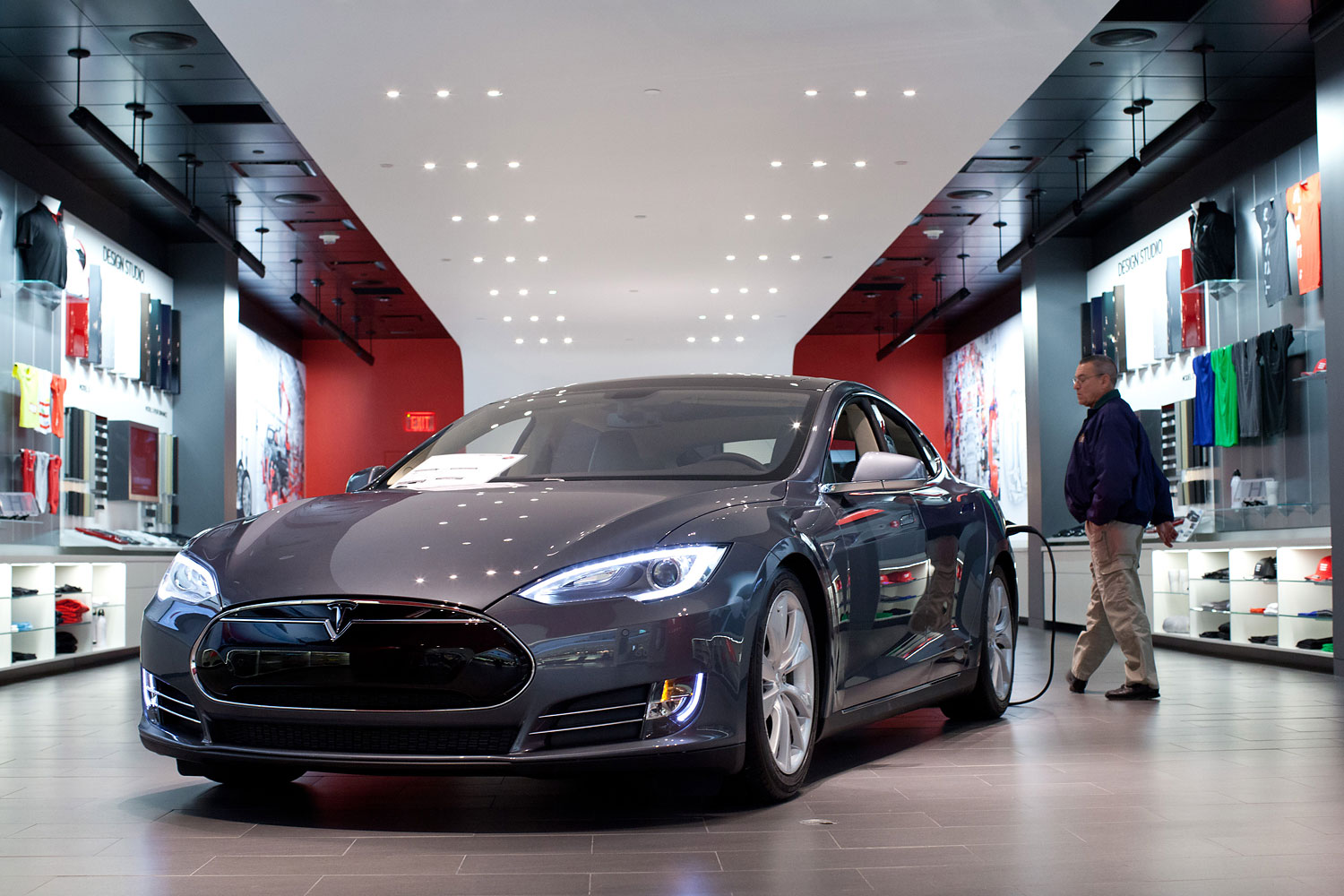
Tesla CEO Elon Musk blasted New Jersey officials on Friday for moving to prevent consumers from buying vehicles directly from the electric car maker, charging that auto dealer lobbyists “cut a backroom deal” with Gov. Chris Christie “to circumvent the legislative process.” In response, the head of the state Coalition of Automotive Retailers accused Musk of throwing a “hissy fit.”
Earlier this week, the New Jersey Motor Vehicle Commission, which is composed of political appointees selected by Gov. Christie, blocked Tesla’s ability to sell electric cars through its own retailers, as it does in New York and Pennsylvania. Tesla sells cars directly to customers through its own retail locations, whereas most car manufacturers rely on third-party dealerships for sales.
As a result of the new rule, New Jersey residents will soon have to go out-of-state if they want to purchase a Tesla vehicle — and that’s exactly what Musk is now suggesting. In a blog post, Musk urged would-be Tesla buyers to visit the company’s New York City store or its King of Prussia, Pa. location near Philadelphia.
For decades, the major U.S. automakers have sold vehicles under the now-familiar dealership franchise model. As a result, the U.S. auto market is composed of thousands of independently owned dealerships, which are granted the right to market and sell brands like Ford — much in the same way that fast-food restaurants like McDonald’s are independently owned franchises.
“When Tesla came along as a new company with no existing franchisees, the auto dealers, who possess vastly more resources and influence than Tesla, nonetheless sought to force us to sell through them,” Musk wrote. “The reason that we did not choose to do this is that the auto dealers have a fundamental conflict of interest between promoting gasoline cars, which constitute virtually all of their revenue, and electric cars, which constitute virtually none.”
This market structure has created a conflict of interest that stacks the deck against Tesla, according to Musk, because the auto dealers “make most of their profit from service, but electric cars require much less service than gasoline cars. There are no oil, spark plug or fuel filter changes, no tune-ups and no smog checks needed for an electric car.”
In the blog post, Musk wrote that he has “made it a principle within Tesla that we should never attempt to make servicing a profit center. It does not seem right to me that companies try to make a profit off customers when their product breaks. Overcharging people for unneeded servicing (often not even fixing the original problem) is rampant within the industry and happened to me personally on several occasions when I drove gasoline cars.”
Musk mocked the “consumer protection” rationale that was presented to justify the New Jersey rule change. “If you believe this, Gov. Christie has a bridge closure he wants to sell you!” Musk declared. “Unless they are referring to the mafia version of ‘protection,’ this is obviously untrue. As anyone who has been through the conventional auto dealer purchase process knows, consumer protection is pretty much the furthest thing from the typical car dealer’s mind.”
Kevin Roberts, a spokesperson for Gov. Christie, defended the policy. “This administration does not find it appropriate to unilaterally change the way cars are sold in New Jersey without legislation and Tesla has been aware of this position since the beginning,” Roberts told CNNMoney. Jim Appleton, head of the N.J. Coalition of Automotive Retailers, denied there was a backroom deal, and told NorthJersey.com that Musk was having a “hissy fit.”
As for Tesla, Musk said that the company’s New Jersey stores will “transition to being galleries, where you can see the car and ask questions of our staff, but we will not be able to discuss price or complete a sale in the store. However, that can still be done at our Manhattan store just over the river in Chelsea or our King of Prussia store near Philadelphia.” Musk added: “We are evaluating judicial remedies to correct the situation.”
More Must-Reads From TIME
- The 100 Most Influential People of 2024
- The Revolution of Yulia Navalnaya
- 6 Compliments That Land Every Time
- What's the Deal With the Bitcoin Halving?
- If You're Dating Right Now , You're Brave: Column
- The AI That Could Heal a Divided Internet
- Fallout Is a Brilliant Model for the Future of Video Game Adaptations
- Want Weekly Recs on What to Watch, Read, and More? Sign Up for Worth Your Time
Contact us at letters@time.com